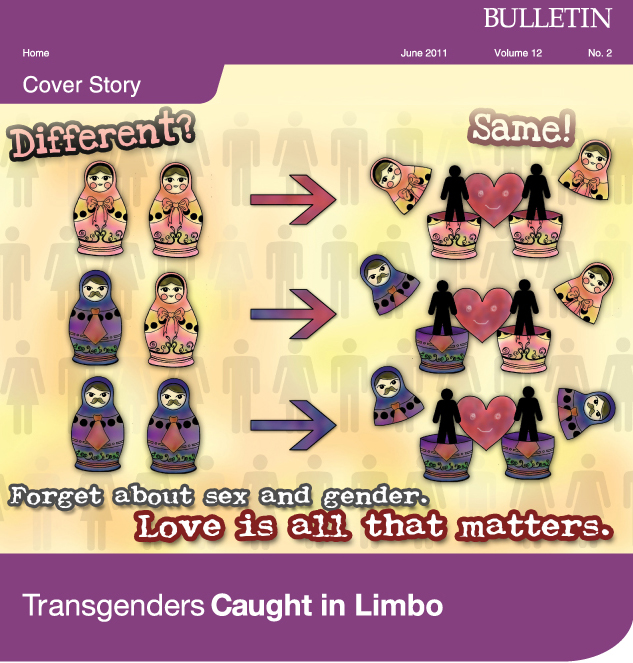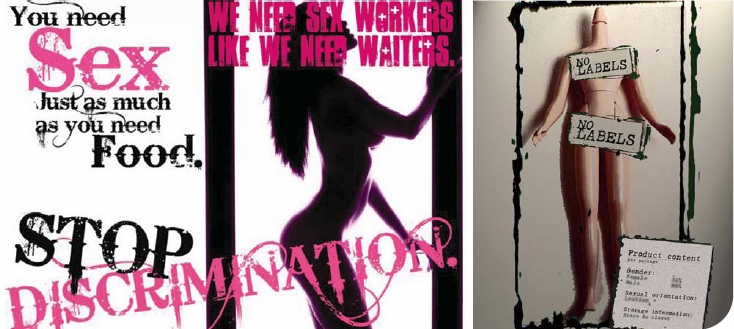
|
Transgender people are among the most marginalized people in society. They experience a mismatch between their minds and their bodies, but if they act on how they feel - for instance, presenting themselves as female though they inhabit a male body - they face intense discrimination. People label them as homosexual, even though they may not be. They get physically and sexually abused, are often denied jobs that match their qualifications, and get pushed into the sex trade where they are at high risk of HIV infection. In Hong Kong, their identity has even been denied, at least legally. Although transpeople can get publicly funded gender reassignment surgery, the courts recently upheld a government decision not to allow a transwoman, 'W', to be regarded as female for marriage so she could marry her boyfriend. The case has attracted much interest at HKU. Dr Sam Winter, Associate Professor in the Faculty of Education, who has been studying transgenders in Asia, was called in as an expert witness and Kelley Loper, Assistant Professor in the Faculty of Law, has written on the decision. A question of rights Ms Loper says the court decided to duck the issue by considering whether there was a societal consensus on whether a transgender woman could be considered a woman for the purpose of marriage. "I see it as a minority claim. Transgender people are marginalized and face a lot of discrimination and problems accessing their rights. Rather than essentially deferring to the majority, the courts could have made a more robust decision to protect the rights of members of this particular group," she says. Dr Winter says prejudice against transpeople is rooted in the mistaken idea that they are mentally ill. This is reinforced in psychiatric manuals, which say transgender people have a 'gender identity disorder'. "The diagnosis pathologizes their identity," he says. "Transpeople feel they are ordinary people who grew up in a way that is discordant with their body. They don't feel mentally disordered, nor does their condition merit being regarded as such, but they have to submit to being labelled by a disease." The diagnosis is a necessary step to getting gender reassignment surgery, but this fails to acknowledge the fact that many transgender people do not have or want the surgery. European studies suggest one in 30,000 males seek the surgery and one in 100,000 females, but Dr Winters believes the number of transgender people could be many times higher than that. | |
 Posters made by students in Dr Sam Winter's class. Posters made by students in Dr Sam Winter's class. |
|
|
Gender on the brain "For some transwomen, their sense of being a woman doesn't come from what's between their legs, and they feel removing their penis won't make them any more of a woman," he says. In fact, "there is increasing evidence that people may be biologically hard-wired to identify as male or female." This possibility, 'brain sex', may explain why transgender people feel they have a mix up between their mind and their body. |
Getting acceptance of that concept remains difficult, though. Unlike Hong Kong, some countries in Asia, such as China, Japan and Singapore, do allow transpeople to legally change their sex, but only if they have gender reassignment surgery which in effect sterilizes them. "They have to submit to a diagnosis of mentally disordered and they have to submit to the knife," he says. Some European countries allow the legal change without the surgery. Dr Winter is working to alter attitudes here. He offers a Common Core course on sexuality and diversity that covers transgender issues and includes talks by transgender people. The hope is that among undergraduates at least, some of the prejudices will be broken down. |  Dr Sam Winter |
| Back | Next |